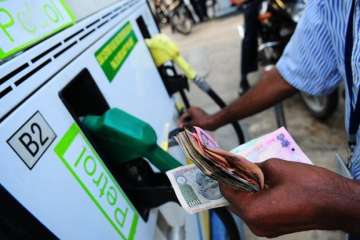Following the Organisation of Petroleum Exporting Countries' (Opec) decision to cut crude oil production by 1.2 million barrels per day (mpbd), the price of petrol is expected to go up by 5-8 per cent and that of diesel by 6-8 per cent over the next 3-4 months, Crisil Research said today.
"The price of Brent crude could increase to $ 50-55 per barrel by March 2017 following Opec's move, and if it surges to $60 as some believe, the price of petrol could touch Rs 80 and diesel Rs 68 per litre. A cut in production always lifts prices, but the success of the Opec agreement depends on adherence," said a Crisil statement.
"As for domestic demand, we expect demonetisation and the consequent reduction in economic growth to curb usage, but things would rebound once currency in circulation reverts to normal levels," it said.
Rising crude prices could lead to an improvement of profitability of public sector refiners in the third quarter of the current fiscal driven by inventory gains.
"In December, the average price of Brent is seen over $50. Given that refiners typically book crude 30-40 days in advance, prices for December delivery will be lower - $46 - as was seen in November. This inventory gain is what will boost GRMs of public sector refiners in the third quarter to $6-7 per barrel levels from $3.8 in the second quarter," it said.
But this benefit will not be available in the fourth quarter because of higher procurement price even as product spreads remain stable.
According the Crisil Research, globally, oversupply is estimated at 1.4-1.7 mbpd at present, which means the Opec production cut would balance out demand and supply in the second half of 2017.
What will also curb a runaway rise in crude prices is that above $50, many shale producers in the US become viable once again, the report added.
(With IANS inputs)
Latest Business News
